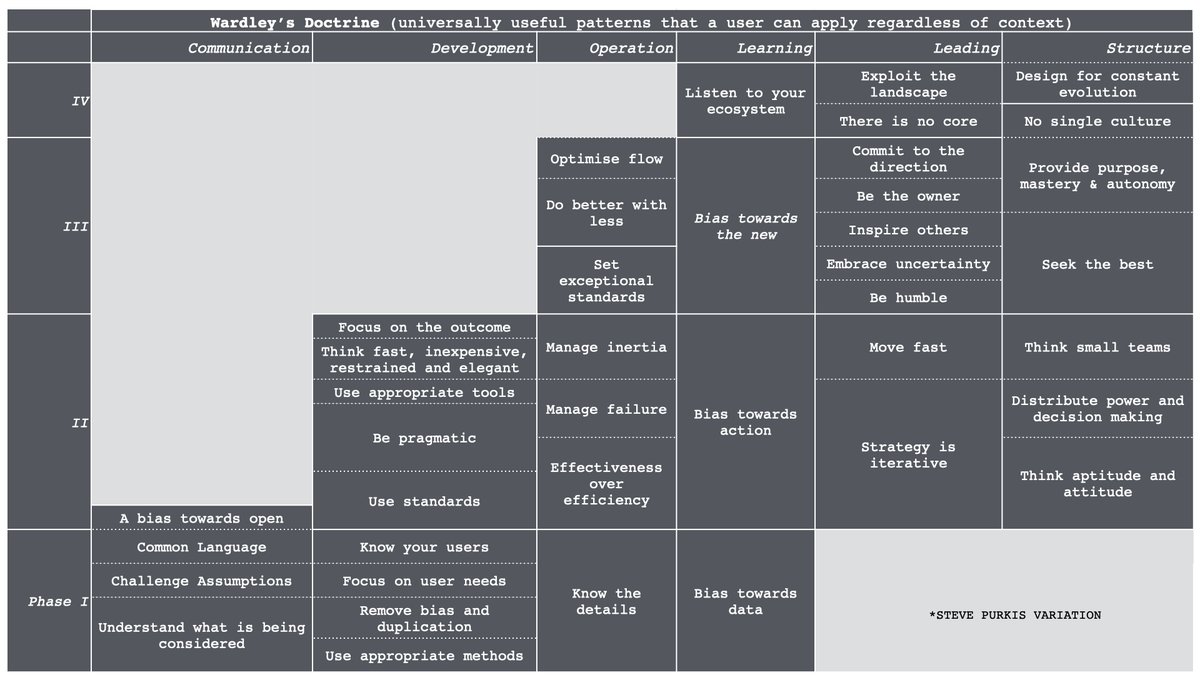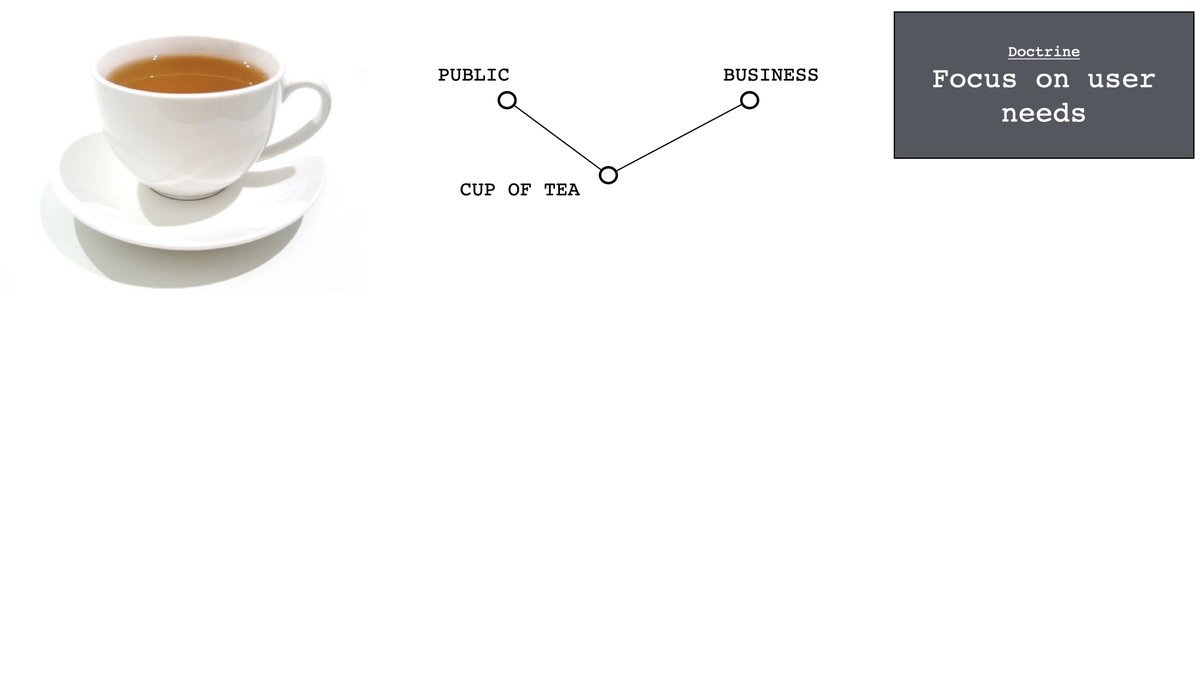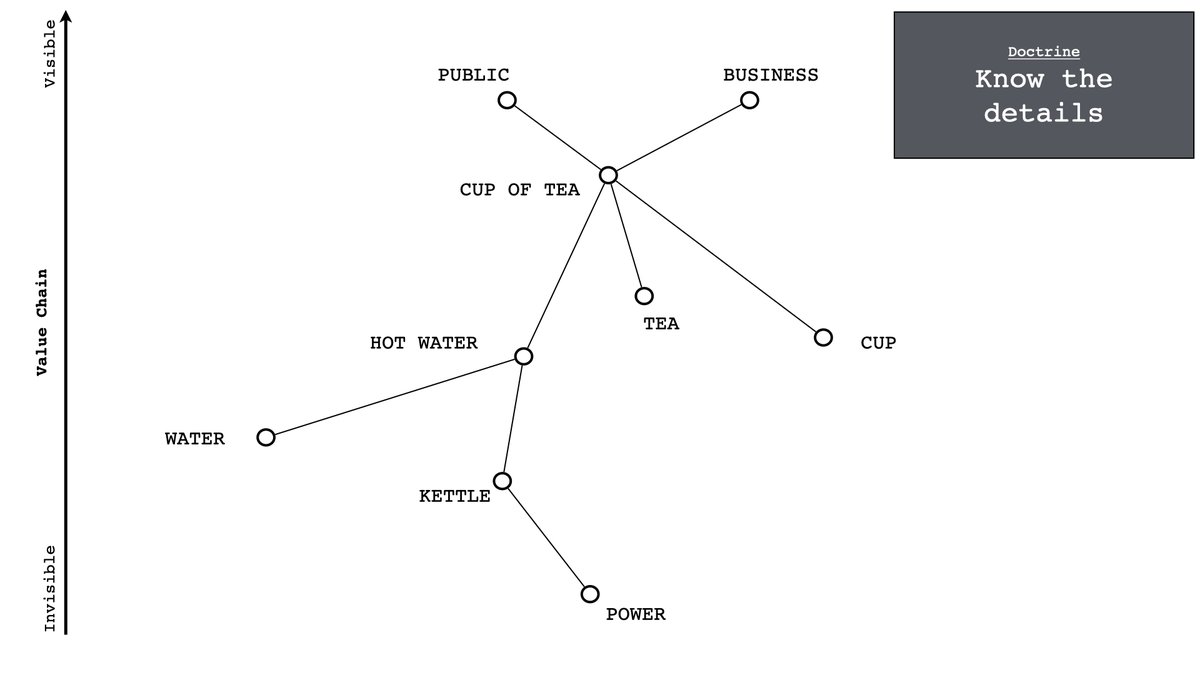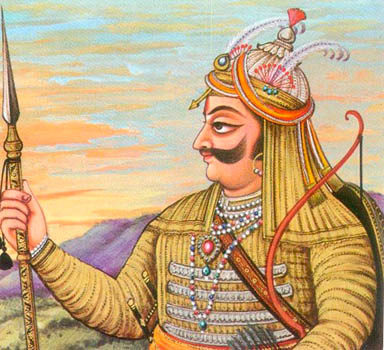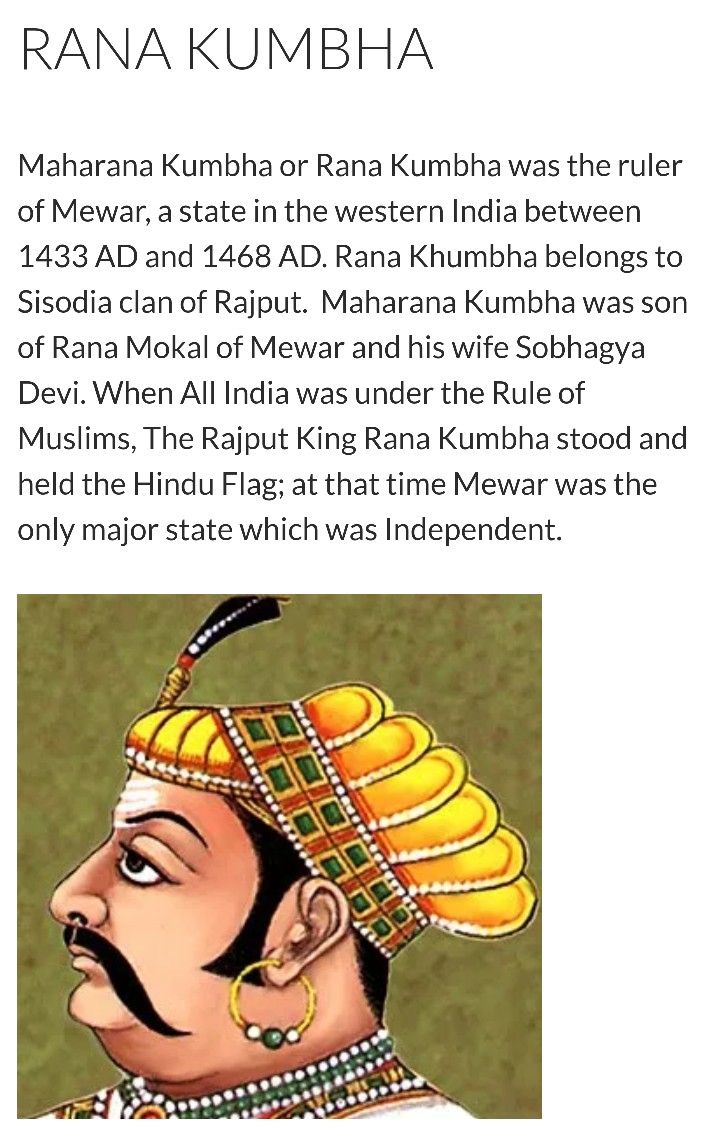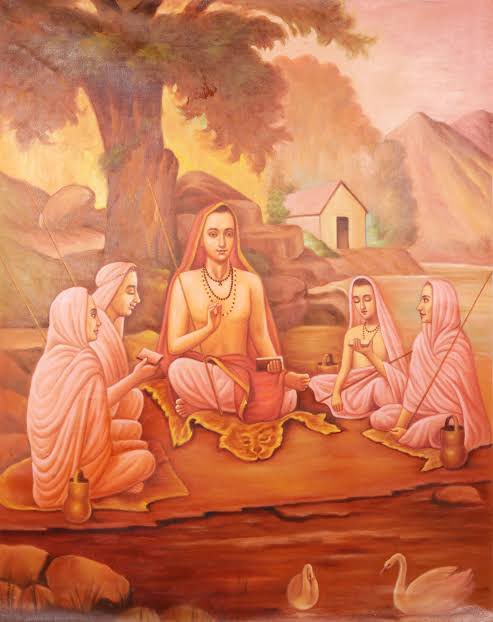Me : Most of the One Nation Conservatives were kicked out of the party. Largesse with the Gov purse in a "Chumocracy" is not what Disraeli meant by "One Nation".
X : Do you not like any Conservatives?
Me : Of course I do. Being Old Labour (Socialist), I have a closer affinity to many One Nation Tories than I do with Blairites, Thatcherites or Communists. Vice versa One Nation. We value the market as a tool, society matters more.
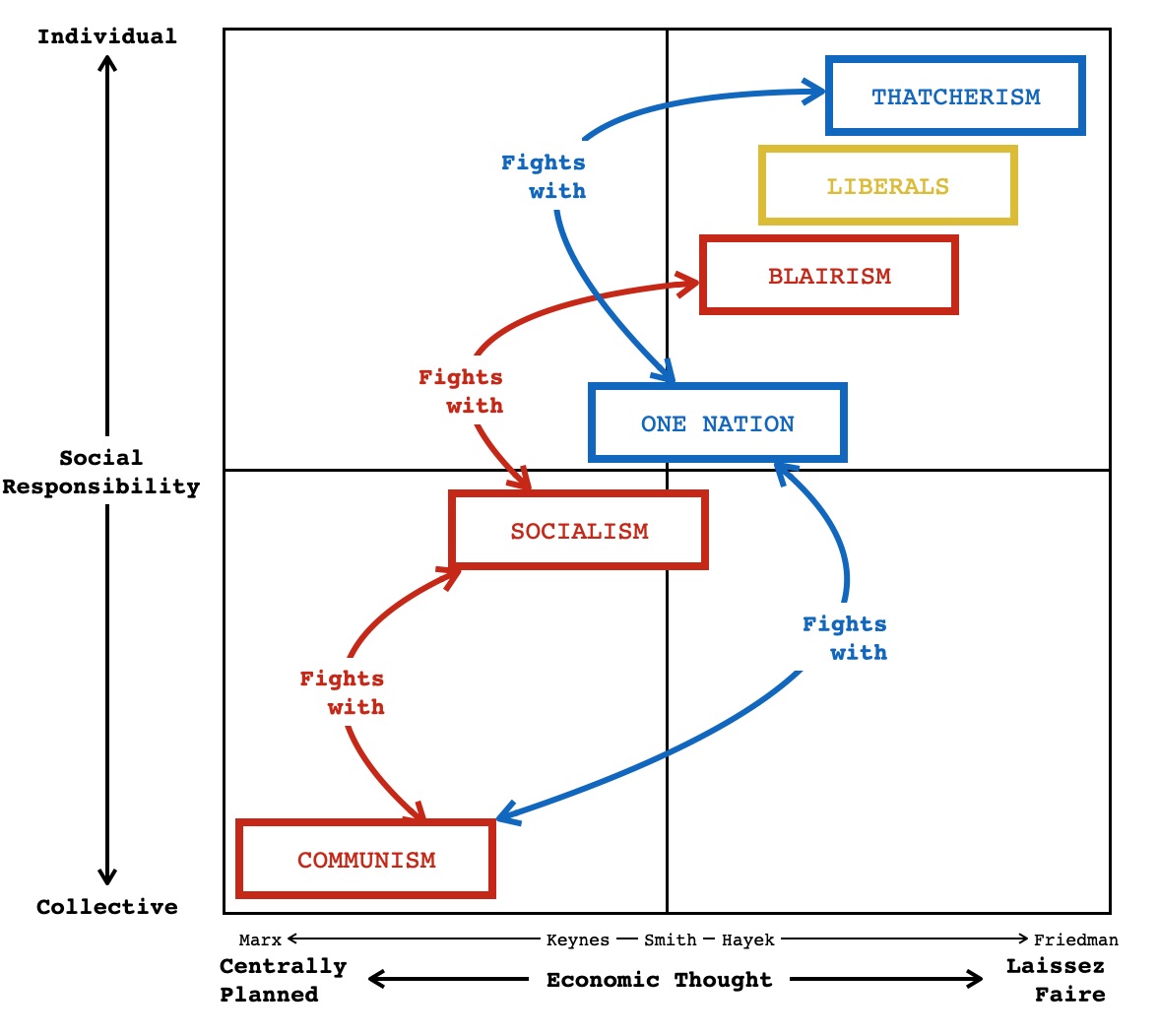
Me : Most of the One Nation Conservatives were kicked out of the party. Largesse with the Gov purse in a "Chumocracy" is not what Disraeli meant by "One Nation".
Me : Both parties - Labour and Conservative - have tended to be broad churches. You'll often find agreement within groups from multiple parties and infighting between groups within a party.
Me : A "new liberal" and a "social capitalism" party?
X : Yes
Me : Bad idea ...
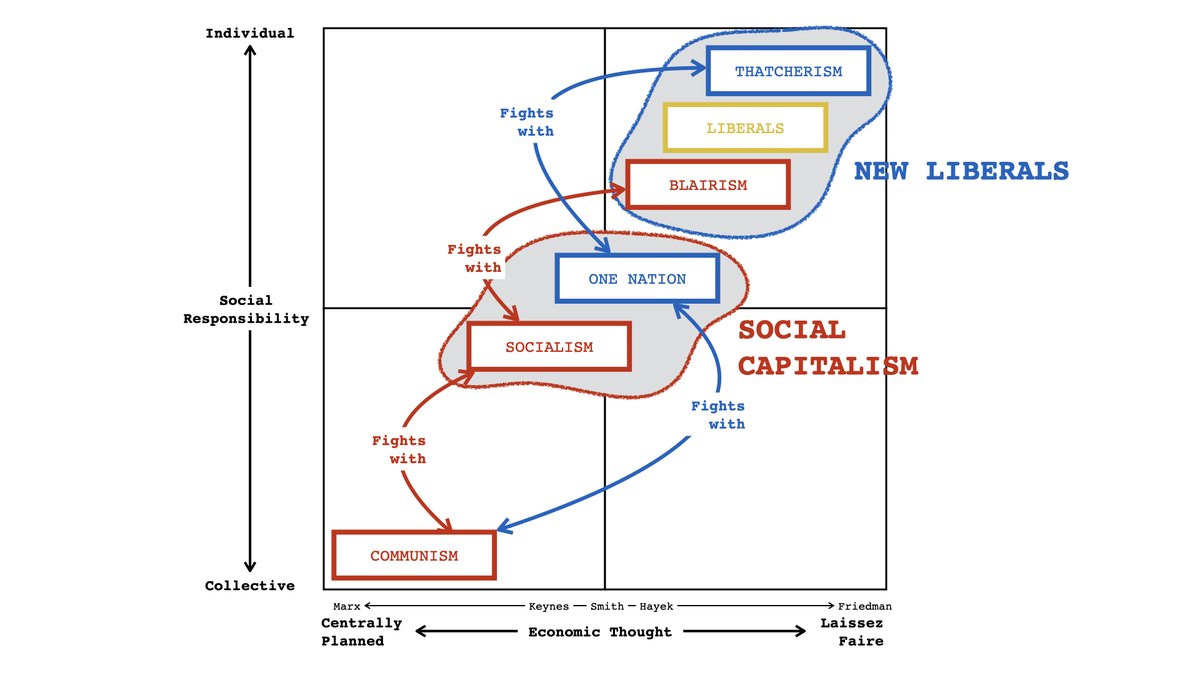
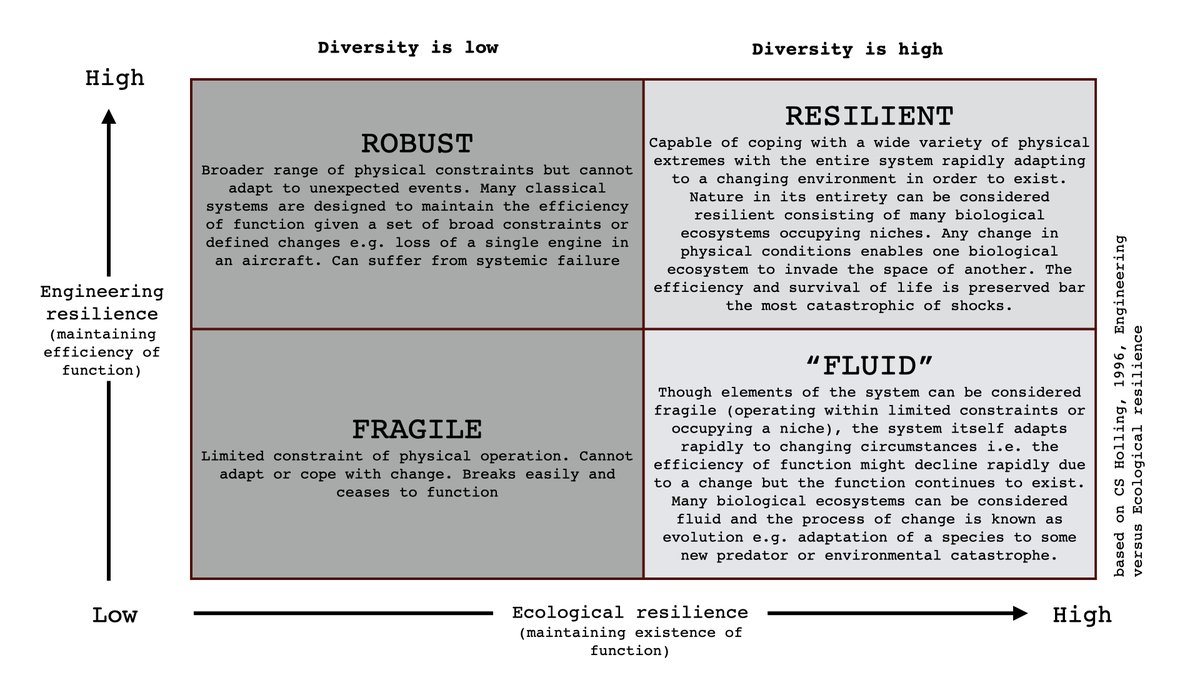
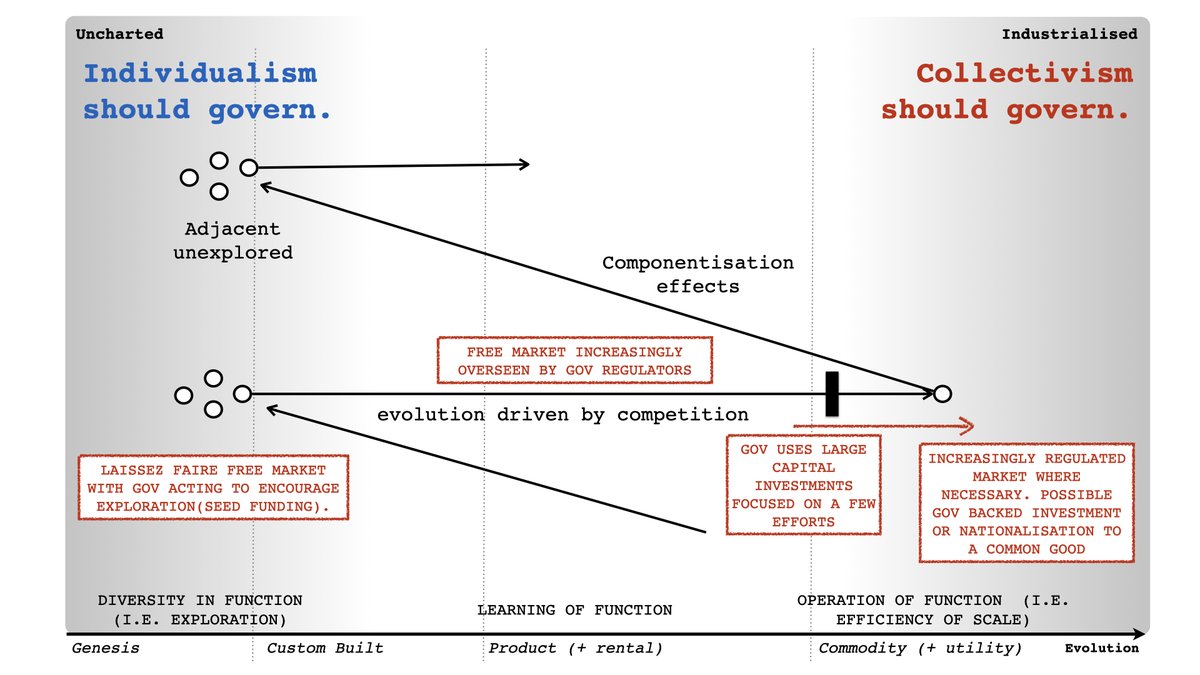
Me : I was keeping it simple to explain a point, the main party's are broad churches and not one thing. I agree that liberals have many facets.
The SNP is at least more politically relevant but as I said, I was keeping it simple.
Me : No. Well ... that depends upon your perception i.e. economic thought is distorted between regions. You can see this by sticking to Western philosophy and comparing US to Europe and their perceptions of China and economic thinking.
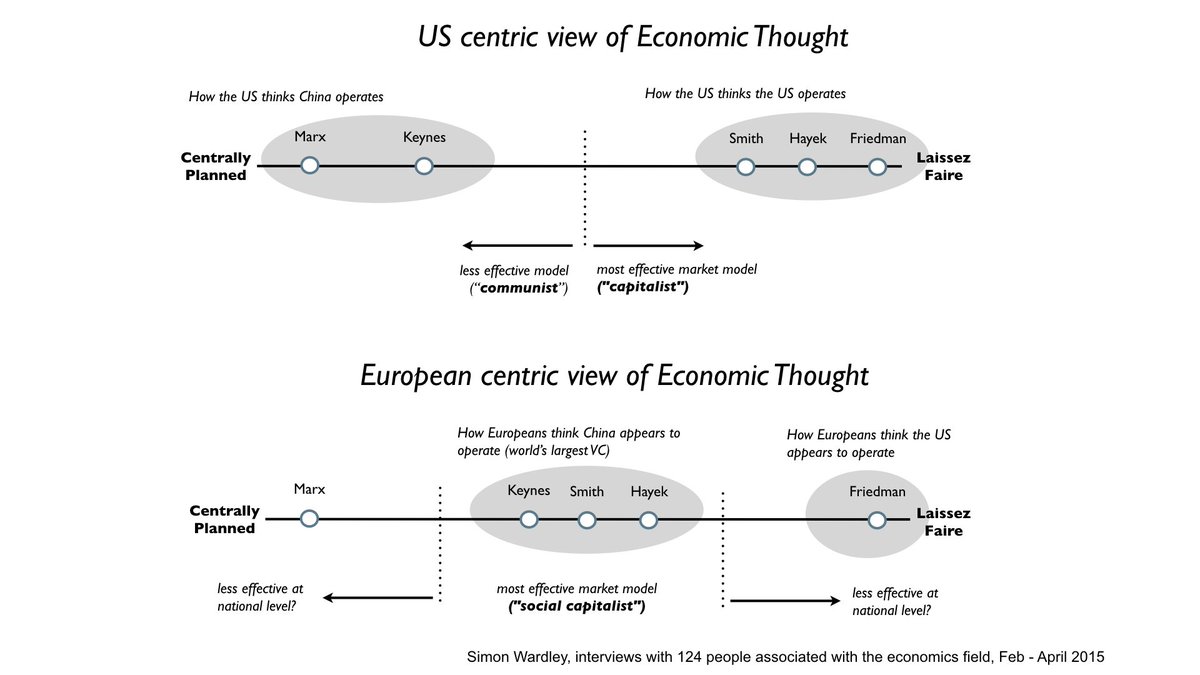
More from Simon Wardley
"Fifty-nine percent of those polled said they believed China will become more powerful than the U.S. within 10 years" - https://t.co/3vN4I1TjwP ... I hate to break it to you but it already is in many areas.
When I published this work (originally from 2015) - https://t.co/GYOItA3StZ - I did tend to get a lot of pushback from US folk when presenting it.
Six years later, less so.
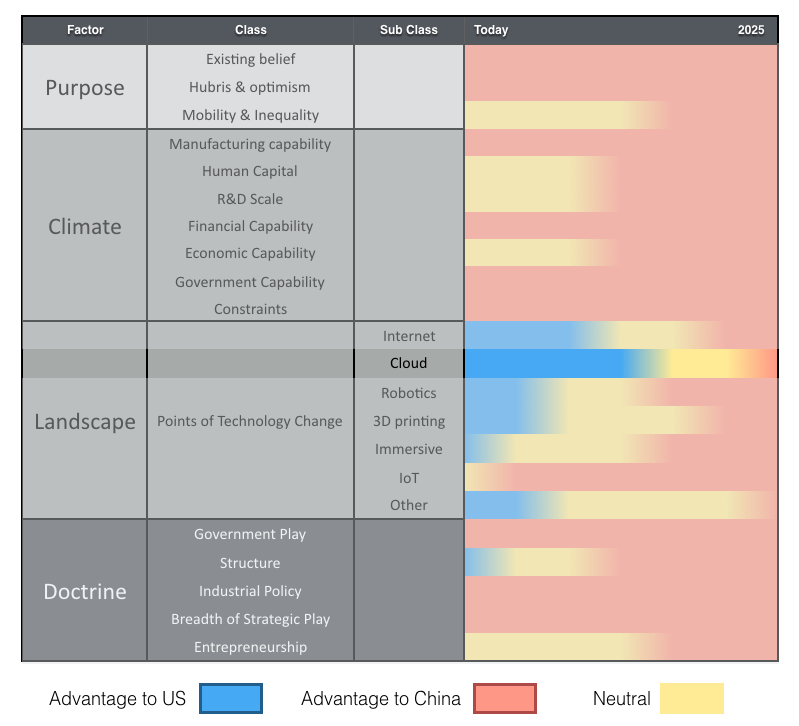
I expect China to start to tackle inequality this year. It's the Achilles heel of the West. We have no response, nor Governments with the required skill, strategy or practice to respond.
We will ultimately face a more advanced, more wealthy and more equal society ...
... as that example of what "is possible" / "good looks like" shift to the East, we will face a painful shift as we question our own values including our kind of democracy. But in reality, the problem is not with our values but our shockingly poor standards of leadership.
X : Is this because of Trump?
Me : No, this has been going on since the 1990s. There has been no effective counterplay to the long game that Deng Xiaoping started. Just hubris, arrogance and exceptionalism with annual Economist articles on "How China will fall".
When I published this work (originally from 2015) - https://t.co/GYOItA3StZ - I did tend to get a lot of pushback from US folk when presenting it.
Six years later, less so.

Though advantage does not immediately translate to leadership, I suspect many underestimate China in the cloud - pic.twitter.com/TXIPk9TE5u
— Simon Wardley (@swardley) January 22, 2016
I expect China to start to tackle inequality this year. It's the Achilles heel of the West. We have no response, nor Governments with the required skill, strategy or practice to respond.
We will ultimately face a more advanced, more wealthy and more equal society ...
... as that example of what "is possible" / "good looks like" shift to the East, we will face a painful shift as we question our own values including our kind of democracy. But in reality, the problem is not with our values but our shockingly poor standards of leadership.
X : Is this because of Trump?
Me : No, this has been going on since the 1990s. There has been no effective counterplay to the long game that Deng Xiaoping started. Just hubris, arrogance and exceptionalism with annual Economist articles on "How China will fall".
More from Society
Imagine if Christians actually had to live according to their Bibles.
Imagine if Christians actually sacrificed themselves for the good of those they considered their enemies, with no thought of any recompense or reward, but only to honor the essential humanity of all people.
Imagine if Christians sold all their possessions and gave it to the poor.
Imagine if they relentlessly stood up for the widow, the orphan, and the foreigner.
Imagine if they worshipped a God whose response to political power was to reject it.
Or cancelled all debt owed them?
Imagine if the primary orientation of Christians was what others needed, not what they deserved.
Imagine Christians with no interest in protecting what they had.
Imagine Christians who made room for other beliefs, and honored the truths they found there.
Imagine Christians who saved their forgiveness and mercy for others, rather than saving it for themselves.
Whose empathy went first to the abused, not the abuser.
Who didn't see tax as theft; who didn't need to control distribution of public good to the deserving.
"If they start canceling these American presidents, they're gonna come after Bible characters next. Mark my words" -- Fox News "news side" host Bill Hemmer pic.twitter.com/qTPV0NERv8
— Aaron Rupar (@atrupar) February 19, 2021
Imagine if Christians actually sacrificed themselves for the good of those they considered their enemies, with no thought of any recompense or reward, but only to honor the essential humanity of all people.
Imagine if Christians sold all their possessions and gave it to the poor.
Imagine if they relentlessly stood up for the widow, the orphan, and the foreigner.
Imagine if they worshipped a God whose response to political power was to reject it.
Or cancelled all debt owed them?
Imagine if the primary orientation of Christians was what others needed, not what they deserved.
Imagine Christians with no interest in protecting what they had.
Imagine Christians who made room for other beliefs, and honored the truths they found there.
Imagine Christians who saved their forgiveness and mercy for others, rather than saving it for themselves.
Whose empathy went first to the abused, not the abuser.
Who didn't see tax as theft; who didn't need to control distribution of public good to the deserving.

